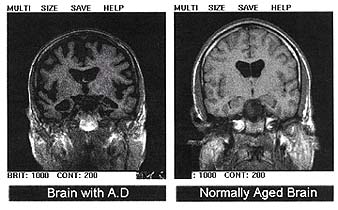Australian researchers, writing in Neuron this week, have identified a drug that can reverse the pathological effects of Alzheimers.
 Victoria Mental Health Research Institute scientist Paul Adlard and his colleagues have been testing the agent, called PBT2, which is orally active. Dementia-prone mice dosed with the drug showed significant improvements in learning and memory tests and also improved neuropathological features including a reduced build-up of a pathological protein called beta-amyloid, a hallmark of Alzheimer's. The researchers suspect that zinc and copper ions released by pre- and post-synaptic neurones respectively, are responsible for promoting the formation of amyloid plaques. PBT2 works by freeing the metals from the plaques and locking them away inside cells, allowing the plaques to be dismantled. The plaque deposits are known to produce neurotoxic chemicals like hydrogen peroxide, so their removal improves local neuronal function, say the researchers.
Victoria Mental Health Research Institute scientist Paul Adlard and his colleagues have been testing the agent, called PBT2, which is orally active. Dementia-prone mice dosed with the drug showed significant improvements in learning and memory tests and also improved neuropathological features including a reduced build-up of a pathological protein called beta-amyloid, a hallmark of Alzheimer's. The researchers suspect that zinc and copper ions released by pre- and post-synaptic neurones respectively, are responsible for promoting the formation of amyloid plaques. PBT2 works by freeing the metals from the plaques and locking them away inside cells, allowing the plaques to be dismantled. The plaque deposits are known to produce neurotoxic chemicals like hydrogen peroxide, so their removal improves local neuronal function, say the researchers.
Whatever the mechanism, the results give chemical credence to early clinical trials that suggest that this new class of agents could be promising future therapies for the disease.










Comments
Add a comment